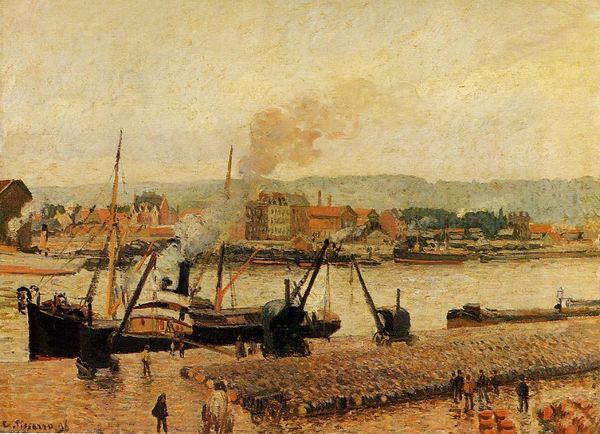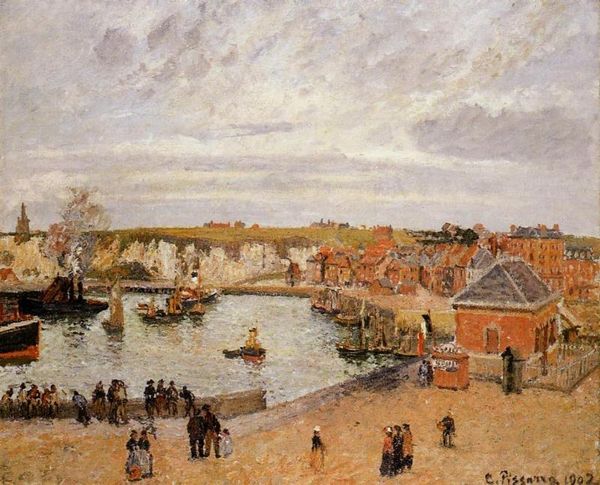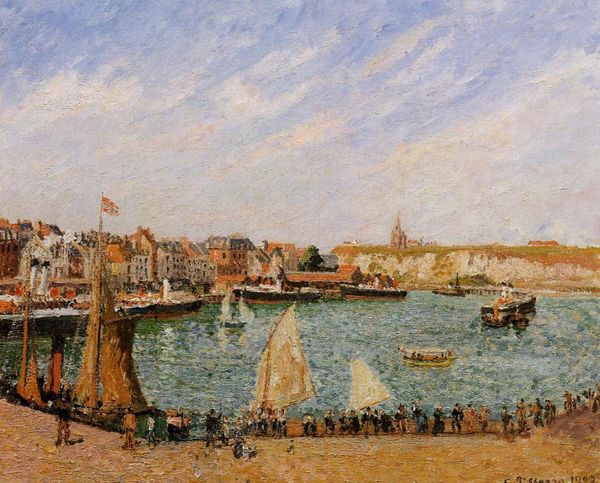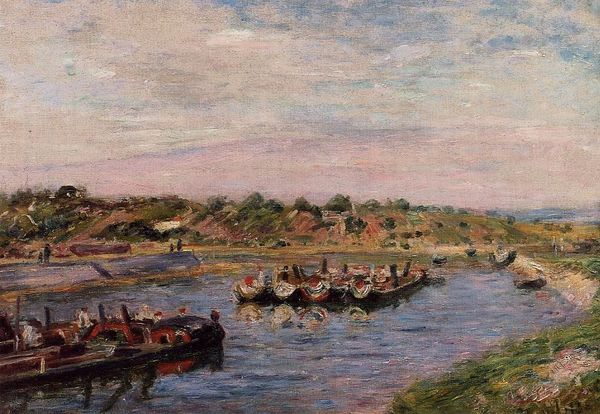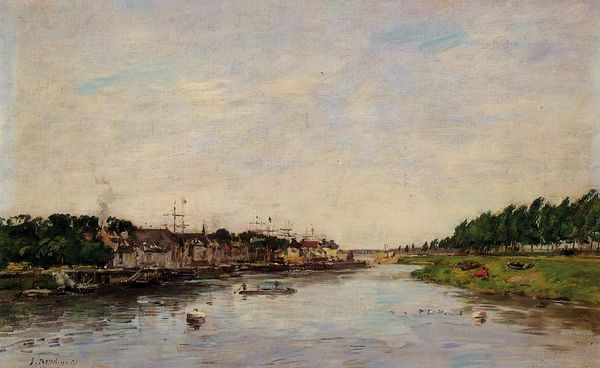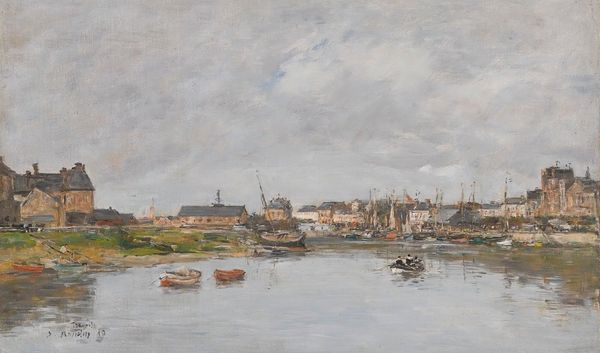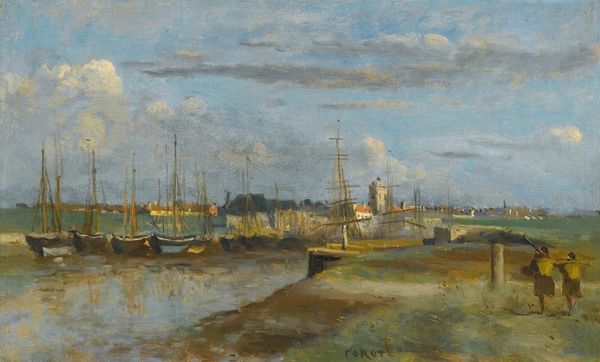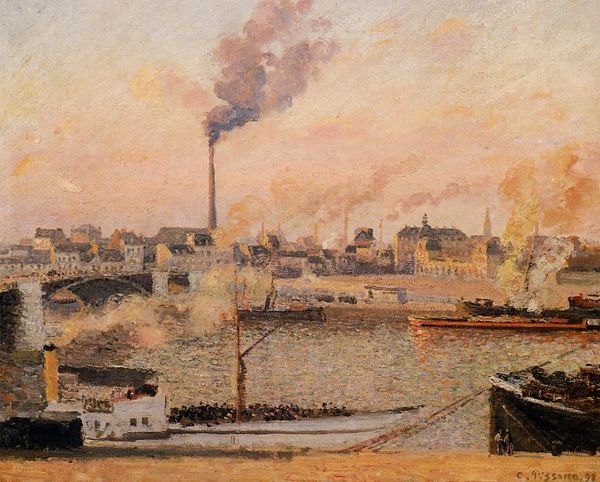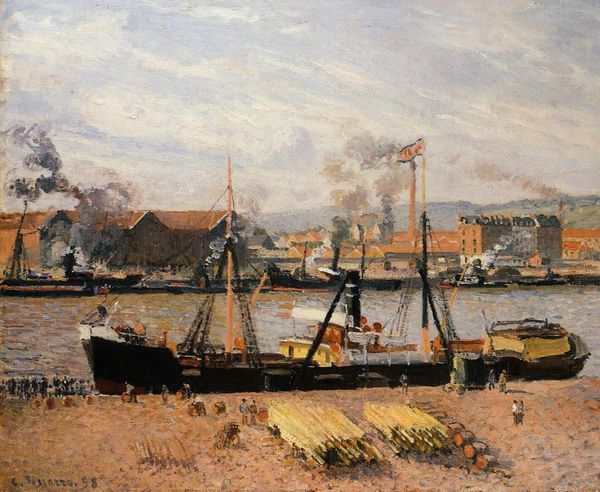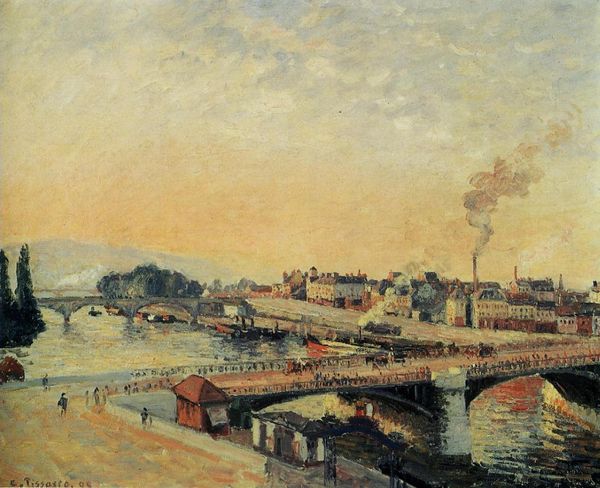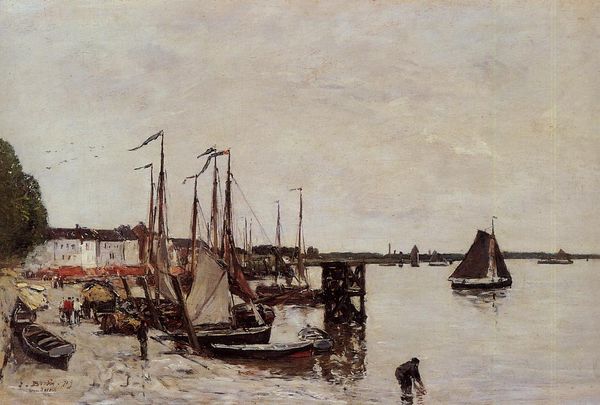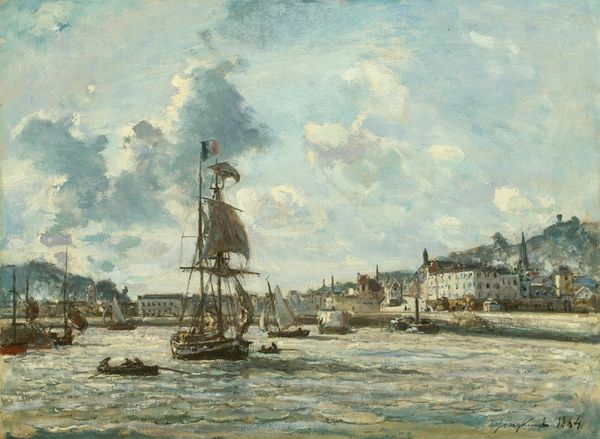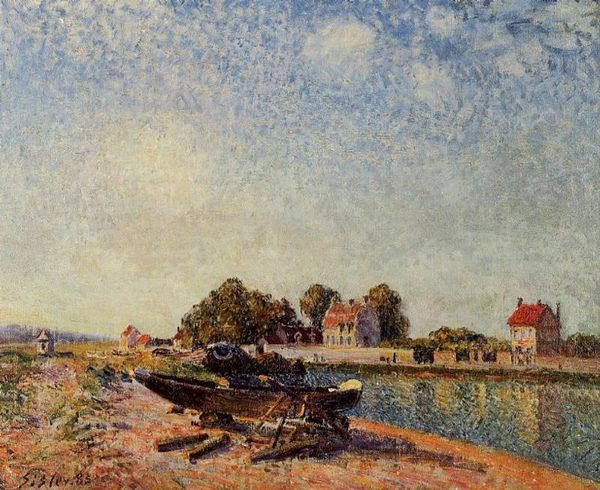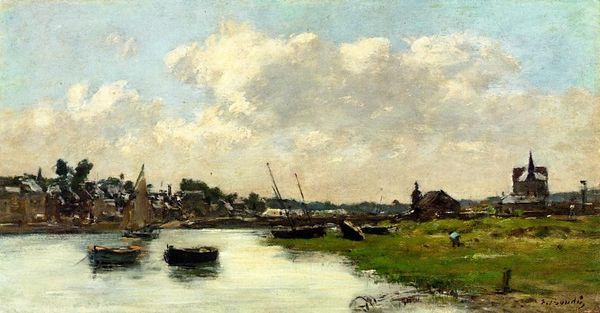
View of the Cotton Mill at Oissel, near Rouen 1898
0:00
0:00
camillepissarro
Montreal Museum of Fine Arts (MMFA), Montreal, Canada
Dimensions: 65.3 x 81 cm
Copyright: Public domain
Curator: Here we have Camille Pissarro's "View of the Cotton Mill at Oissel, near Rouen," created in 1898. The work, oil on canvas, finds its home here at the Montreal Museum of Fine Arts. Editor: It's... well, honestly, it feels like industry pressing up against a quieter, almost classical sensibility. The colors are soft, almost hazy, but the mill itself, with its smokestack, is undeniably the focus. Curator: Pissarro often engaged with these juxtapositions. In the late 19th century, the industrial landscape was rapidly changing the social and economic structures in France and beyond, so to speak. Representing these scenes became politically relevant. He was drawn to depicting modern life and how factories affected communities. Editor: The rising smoke in the composition becomes a strong motif. In many cultures, smoke is often used as a symbol representing transformation and the ephemeral nature of existence. It becomes quite loaded, considering that factories represent advancement, but also destruction of a landscape and a way of life. It challenges a straightforward interpretation. Curator: I agree, the symbolism of the factory isn't straightforward in Pissarro's hands, unlike perhaps some of his contemporaries. Pissarro had anarchist leanings. Viewing the laboring figures at the docks hints to his socio-political perspective in depicting industrial life as being one of humans overshadowed by the changing landscapes. It's less about celebration and more observation with implied social criticism. Editor: Looking at the placement, it seems like even the boats echo this relationship between tradition and the modern world. The traditional boats are juxtaposed against steam, it emphasizes their own impending obsolescence and perhaps signifies disruption of established systems of life. Curator: It is intriguing that he returns to similar harbor and port scenes, time and again. You would think that industrial modernity might be uninteresting after a time, and yet it preoccupied him until the very end of his life. Editor: Perhaps he felt the weight of representing change. It makes me reconsider these cityscapes; these paintings aren't simply documentation of industrial landscapes. Pissarro captures the complex ways technological advancement echoes within a society's collective visual consciousness. Curator: I hadn't quite framed it that way, but now, after our discussion, the artwork carries even more nuance. Editor: Indeed, an image layered with cultural echoes.
Comments
No comments
Be the first to comment and join the conversation on the ultimate creative platform.
